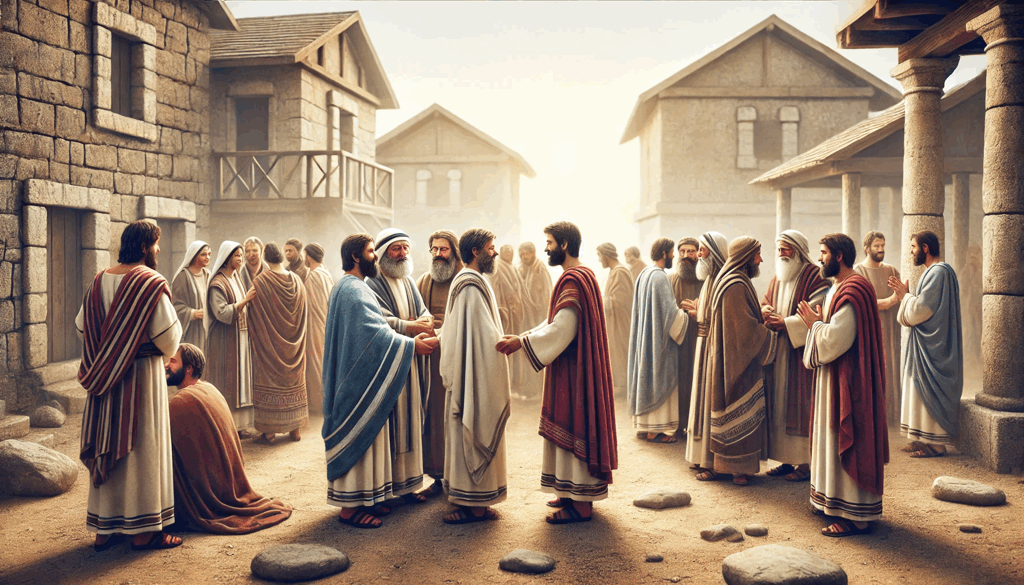In Romans 14, the Apostle Paul addresses a church facing division, likely between Jewish and Gentile believers. His message is one of unity, love, and mutual respect. Today, as in Paul’s time, disagreements arise within the community of believers. The key question is, how do we handle those differences?
Paul encourages the church to focus on what truly matters in their faith. He stresses that judgment belongs to God, not to each other. Romans 14 calls us to stop quarreling over opinions and secondary issues that distract from the core of Christianity: our relationship with Christ.
Key Themes in Romans 14
One of the first points Paul makes is that in matters of faith, particularly those that aren’t central to salvation, we should welcome one another without quarreling. These minor disputes, such as whether or not to eat meat or observe specific holy days, were dividing the early church.
In Paul’s time, some believers, particularly Gentiles, had no qualms about eating meat offered to idols because they didn’t believe in the existence of other gods. Others, mainly Jews, had concerns about the purity of food and their relationship with God. Paul’s response was simple: don’t pass judgment. Each person is accountable to God alone.
This principle resonates today, where modern debates on worship styles, denominational practices, or cultural norms can cause unnecessary friction. As Paul notes, these disagreements are not what the Kingdom of God is about. Instead, the focus should be on “righteousness and peace and joy in the Holy Spirit” (Romans 14:17).
Navigating Differences with Grace
Romans 14 further teaches that even when we believe we are right, we must not be a stumbling block for others. Paul advises believers not to do things that could cause others to falter in their faith. If one believer feels convicted about not eating certain foods or observing certain practices, it is not our place to pressure them into changing their ways.
The same applies today. If a Christian feels called to observe the Sabbath, for example, it’s not up to others to dissuade them. On the flip side, those who feel freedom in Christ should not flaunt their liberty in ways that might disturb the consciences of others.
Unity Over Uniformity
Paul’s overarching message is clear: unity in the church is far more important than uniformity. We don’t all need to agree on every point of doctrine or practice. What we do need is to “pursue what makes for peace and for mutual upbuilding” (Romans 14:19).
In a world that encourages division over personal preferences and opinions, the church should stand as a beacon of unity. By focusing on the essentials of the faith—our belief in Christ and His saving grace—while allowing room for diversity in non-essentials, we can create a community of believers that reflects God’s love to the world.
Conclusion
Romans 14 challenges us to let go of judgment, respect each other’s differences, and prioritize the love of Christ. As Paul says, “Who are you to pass judgment on the servant of another?” (Romans 14:4). Our task is not to judge, but to love. By doing so, we not only strengthen our community of faith but also honor God, who calls us to peace and mutual edification.

